"Efficiency is doing things right; effectiveness is doing the right things." - Peter Drucker
These words ring especially true for consultants. They need to find the right balance of both efficiency and effectiveness in their approach – while juggling multiple projects, their unique goals, timelines, and stakeholders. To truly excel as a consultant, it takes more than just expertise—it requires a finesse for effectively managing projects. Project management is what enables consultants to streamline processes, ensure client satisfaction, and drive profitability.
In this blog post, we look at how you, as a consultant, can make the most of project management methodologies to optimize your consulting practice.
3 reasons why project management matters for consultants
Given its reliance on multitasking and managing diverse projects, consulting stands to benefit greatly from effective project management. Here are three key reasons why project management is a must-have for consultants:
1. Boosting productivity and profitability
Effective project management isn’t just about completing tasks; it's about doing them efficiently. Consultants can harness project management to optimize workflows, allocate resources effectively, and ultimately drive profitability.
In addition, consultants often work with limited resources. Project management aids in maximizing these resources without overwhelming teams, ensuring optimal utilization while maintaining work-life balance.
Project management tools and methodologies assist consultants in estimating costs more accurately, leading to more competitive bids and better project outcomes.
2. Improving timeline and budget management
Project management empowers consultants to map out project timelines that are not just feasible but also based on past successful projects. By establishing realistic timelines, consultants mitigate the risks of delays and ensure smoother project execution.
Similarly, project management equips consultants with the ability to define and allocate resources judiciously, aligning expenses with the project's goals and requirements. This practice involves cost estimation, resource allocation, and constant monitoring to prevent budget overruns. With effective budget management, consultants can optimize resource utilization while maintaining financial integrity throughout the project lifecycle.
3. Ensuring consistent and timely deliverables
Consistency is key in consulting. Project management methodologies lay the groundwork for structured workflows that adhere to stringent quality standards. Consultants can define clear processes, establish checkpoints, and enforce quality control measures throughout the project lifecycle. This ensures that deliverables are not only consistent in meeting predefined quality benchmarks but also align with client expectations.
Moreover, project management ensures that consultants can define and adhere to schedules and timelines. By continuously refining and optimizing their methodologies, they can ensure smoother workflows, quicker turnaround times, and higher-quality deliverables. This iterative approach to improvement guarantees that consultants are consistently evolving and adapting to deliver superior results.
7 project management tips for consultants
Effective project management stands as a non-negotiable pillar for success as a consultant.
Whether you are a seasoned consultant or just starting on this path, mastering the art of adeptly managing projects can afford you greater control, streamlined operations, and superior results. Bearing this in mind, we have assembled seven valuable project management tips specifically tailored to consultants.
These tips will help you not only survive but thrive in the fast-paced consulting world.
1. Tailor your proposals with project management insights
In the consulting world, nailing down project budgets and timelines is not about years of experience; it’s about better using data.
Your project management processes shouldn't just show who's available for a project. It should also provide insights from past projects, like where you might need more or fewer resources, where time estimates were off, or which resources performed best. This helps shape future proposals for more productivity and profit.
The right project management tools let you use job and resource data to create smarter proposals. They give you live views of available resources, tools to compare different scenarios based on what you have, models to calculate profits, and predictive forecasts.
By integrating project management insights into your proposals, you ensure clear expectations, realistic project plans, and better capacity planning. Ensure that your proposal includes:
- Clear objectives: Define project objectives and deliverables concisely, aligning them with client needs and expectations.
- Realistic timelines: Propose achievable timelines based on thorough scoping and resource allocation.
- Risk mitigation: Outline proactive strategies to mitigate potential risks, showcasing your preparedness.
2. Nail down project scopes to the smallest detail
Mid-project scope changes can be a real headache. That's why clear, precise project scopes are a must. When you detail everything—the deliverables, timelines, and who's doing what—it minimizes confusion and stops the scope from ballooning without fair compensation. This also allows you to create change orders and adjust budgets if clients come back with new changes that weren't part of the initially agreed-upon scope.
At your end, when you're clear about what each project stage involves, your team knows exactly what's expected. This ensures they deliver what's needed, no more, no less, for a more controlled output. It also prevents unnecessary resource allocation that doesn't actually impact business productivity.
3. Templatize wherever possible
In most consulting firms, there are elements in their deliverables that are similar to past projects. Whether it's document templates, project charters, presentations, or other materials, creating reusable templates allows you to achieve similar results with less effort.
- Identify opportunities for templatization: Look through completed tasks for elements that can be reused in future projects.
- Automatically detect tasks/steps that benefit from templates: Use your project management tool to mark tasks that could benefit from these templates. This ensures that the process itself minimizes repetitive work, rather than relying on individuals to remember the availability of reusable assets.
4. Ensure consistent check-ins
Effective project management involves consistent reviews to ensure projects are on track with timelines, budgets, and milestones. Here’s what your approach needs to include:
- Regular progress check-ins: The frequency of these reviews should align with the project's duration and complexity. It's like giving your project a quick health check-up to make sure it's on track with timelines, budgets, and milestones.
- Strategic checkpoints: Pinpoint crucial moments where your project might hit rough patches. Set up checkpoints at these spots – early warning systems to catch and fix issues before they become big problems.
- A visual approach to track project progress: Opt for a project management tool that gives you a bird's-eye view of all your projects. It's like having a dashboard for your projects' health – everything you need to know, all in one place.
5. Implement centralized information management
Many consultants encounter challenges by using various file systems, messaging apps ( email, chat tools, Slack, etc.,), multiple CRMs for conversation tracking, storing documents, inadvertently saving different versions on various devices, and so forth. This can lead to disarray, inconsistency, and reduced efficiency.
Instead, a part of your project management strategy should focus on centralizing documents with versioning capabilities and native storage. Professional Service Automation (PSA) tools such as Rocketlane help you manage multiple projects seamlessly – while linking them directly to specific tasks, projects, or conversations.
You also need to ensure that clients can easily track project progress, access important documents, submit feedback, and communicate directly with your team. This seamless client access streamlines interactions and information exchange -- and keeps clients accountable.
6. Track the right metrics
Consultants often showcase metrics displaying the success of solutions offered to clients. However, you also need metrics that evaluate your company’s overall performance.
Employing project management metrics like actual versus planned budget, cost analysis of performed tasks, comparison of planned versus actual work hours, and risk/change assessment aids in more efficient project monitoring.
Standardized metrics further facilitate the analysis of project patterns, identifying consistent areas where budgets or timelines veer off track, ineffective resource utilization, or other potential areas for enhancement. Here’s what your project management approach needs to include:
- Key Performance Indicators (KPIs): Whether it is project profitability metrics like billable utilization or rate realization, clearly define key performance indicators (KPIs) that align with your business objectives.
- Regular monitoring: Continuously track metrics to measure progress and identify areas needing attention.
7. Capture and integrate learnings from each project
After every project, take the time to figure out what worked, what didn't, and what you learned through project debriefs.
- Include data-backed insights: Approach these debrief sessions armed with data extracted from your project management software. Dive into task progress, budget usage versus projections, how resources were allocated versus initial plans, and any red flags or changes that shaped the project's outcome.
- Spot patterns and trends: Compare this data with past reports to spot recurrent trends. Are there areas where costs tend to slip under the radar consistently? Do certain stages face bottlenecks or speed through unexpectedly? Identifying these patterns beforehand lets you fine-tune strategies and keep improving.
- Capture success stories: Identify your wins and use them to create success stories – for customers, and as yardsticks for ongoing projects.
Empower your consulting practice with Rocketlane's project management capabilities
We developed Rocketlane with all the critical features you need to plan, execute, and manage projects effectively. Here's what makes Rocketlane the best-fit project management tool for your consulting practice:
- Custom workflows: Create cohesive workflows for projects, tasks, and forms. Use specific rules for similar projects, ensuring seamless operations.
Rocketlane’s automation rules streamline project delivery, automatically advancing projects and enabling prompt actions to keep projects on track. - Smart task monitoring: Automatically identify tasks exceeding deadlines. Use Rocketlane’s Interval IQ to automate milestone tracking, accelerate project delivery, and improve risk management.
- Streamlined communication and reporting: Collaborate, share updates, and manage tasks within Rocketlane. Its robust reporting features offer valuable insights into project progress, resource allocation, and budget tracking.
- Consistency across projects: With Rocketlane, you can repeat your best work through customized project and document templates tailored to different customer segments.
- 360° view of your projects: Stay on top of things, catch issues early, and ensure smooth sailing throughout your project journey.
Watch all this in action. Sign up for a Rocketlane demo.
FAQs on project management for consultants
1. Which specific challenges drive the need for specialized project management tips among consultants?
Consultants often handle multiple projects simultaneously, each with unique requirements and timelines. Effective project management helps them organize tasks, deadlines, and resources efficiently.
2. How does effective project management contribute to the success of consulting projects across various industries and scopes?
Effective project management ensures streamlined workflows, clearer communication, and optimized resource utilization, ultimately leading to timely and successful project delivery.
3. How does adopting specific project management methodologies significantly improve consulting outcomes or client satisfaction?
Implementing methodologies like Agile or Lean has enhanced consulting outcomes by fostering iterative improvements, allowing for rapid adjustments, and aligning deliverables more closely with client expectations.
4. In what ways does project management empower consultants to navigate complex client expectations and evolving project requirements?
Project management offers frameworks for clear goal-setting, efficient communication, and adaptable strategies, enabling consultants to address evolving client needs while ensuring project alignment.
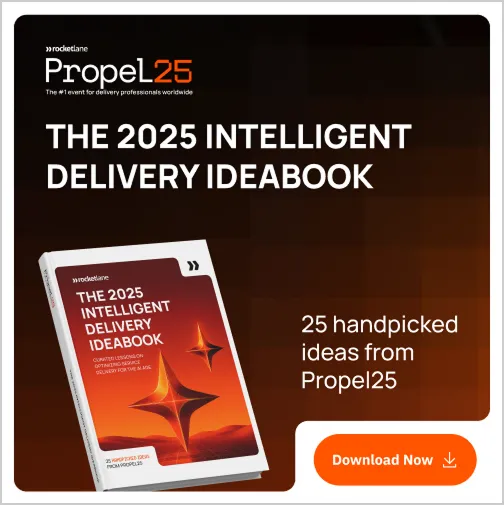






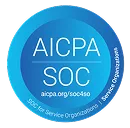
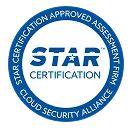
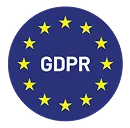
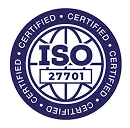









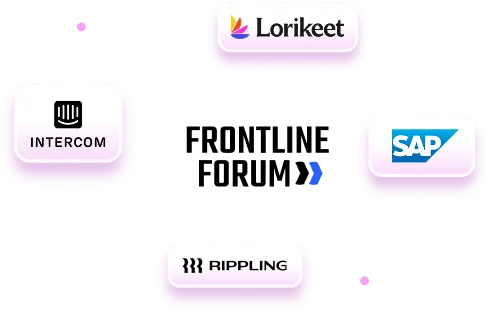
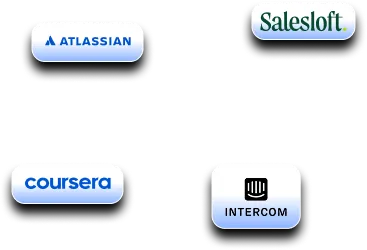


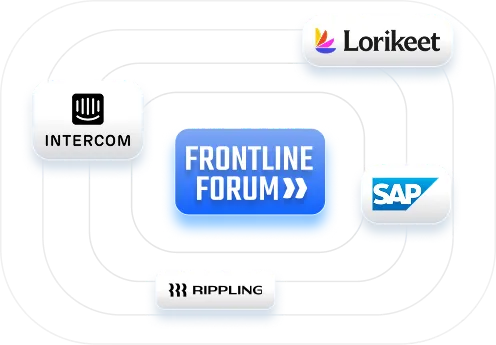
.webp)